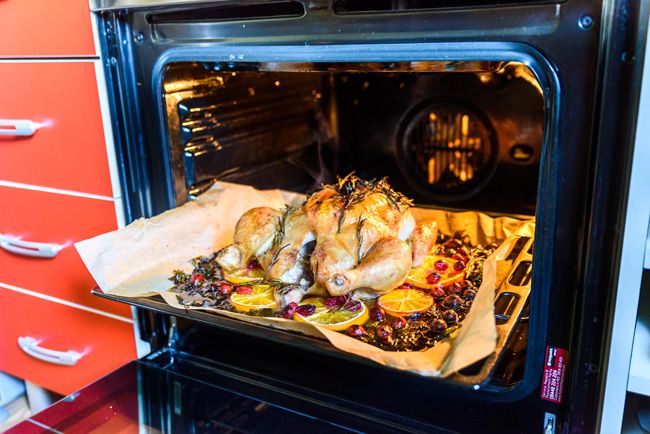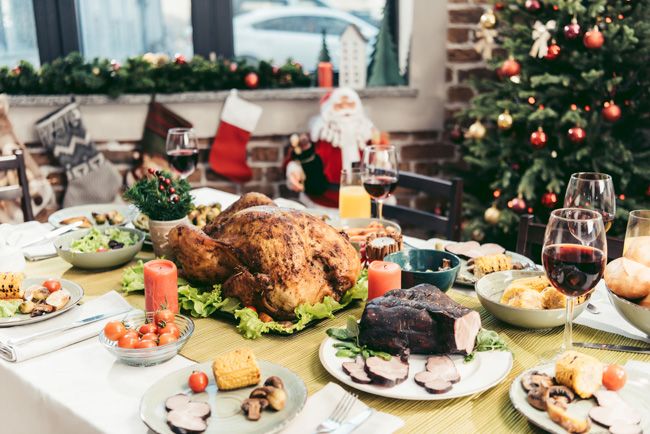With energy bills at an all-time high and Christmas around the corner, many households will be worried about the extra cost associated with this time of year. There's the Christmas lights, the extra cooking and the heating to warm up those cold nights – so how can you reduce your bills?
RELATED: 10 genius ways to keep your house warm without paying for heating
MyJobQuote enlisted the help of heating expert Matthew Jenkins to analyse how much the festive season adds to energy bills and come up with savvy tips for how to save at this time of year. Read on to find out more…
How much does Christmas add to your energy bill?
As well as being the jolliest time of year, Christmas is without a doubt, the most expensive time of year – and 2021 is set to be even more costly. Matthew explains: "On average we spend 29 per cent more in December than we do in any other month." Adding: "From rising costs of fuel and energy to inflated food and present prices, this season is expected to be extremely pricey."
How cost-effective are your Christmas lights?
8 easy ways to save energy this Christmas
1. Switch to solar powered Christmas lights
"The average Christmas light display, which is around 200 fairy lights, can add almost £13 to your household bill," Matthew warns. One of the most budget-friendly, and also sustainable, ways to hang your Christmas lights is to opt for solar-powered lights, which charge using the sun’s brightness. Winter weather isn't known to be particularly bright, so it usually helps to charge them up in the Autumn.
READ: 13 easy home hacks to reduce your electricity bill now
SHOP: 16 cosy things to buy on Amazon that will definitely make the cold nights easier
2. Try LED Christmas lights
"Another way to keep costs down is to opt for LED lights, rather than standard non-LED bulbs, as this is estimated to save you over £11 for the festive season," he advises. "This is because LED bulbs consume less electricity and don’t lose their brightness."
3. Turn off your oven early
On average, cooking accounts for 20 per cent of a household’s energy use during the year, which rises to 31 per cent on Christmas Day alone! "Using the oven for five hours, which is the average time of cooking a full Christmas dinner, uses 4.35 kWh which equates to almost a week’s worth of cooking, all in one day!" Matthew explains.
Cooking uses up a lot of energy
Turning the oven off five or so minutes before you finish cooking is a smart way to save energy. The residual heat will be substantial enough to finish cooking, without affecting quality.
4. Open your oven after cooking
Leaving your oven door open after you've taken your food out is a clever way to add some heat to your kitchen without paying for more heating. Of course, just be careful if you have young children around.
WOW: Best celebrity Christmas trees 2021: Amanda Holden, Alison Hammond, Tess Daly and more
5. Cook everything in one go
Instead of turning the oven on and off for different dishes, try and fit as much into the oven as possible to cook it all in one go. Even if your items need to share trays, it's worth it to save energy!
6. Pre-cook foods before roasting
By boiling vegetables before putting them in the oven, you can reduce the amount of cooking time required. It may seem surprising that adding an extra step can save energy but boiling veg requires much less energy than baking from raw.
Ditch the dishwasher this Christmas
7. Do the Christmas clean up by hand
Dishwashers might be easy but they sadly do use up much more energy than washing up by hand. Crank up the Christmas tunes and get the whole family involved in washing and wiping up to blitz the process even quicker.
8. Give your furniture a festive shake-up
"Energy bills will likely be the most expensive during the Christmas period, as we spend more time at home as work and schools shut for the festive season," warns Matthew. You may have already re-jigged your living room to fit your Christmas tree in but moving your furniture around can also have a cost benefit too. Move sofas and cabinets away from heaters and radiators to make sure the heat isn't wasted.












